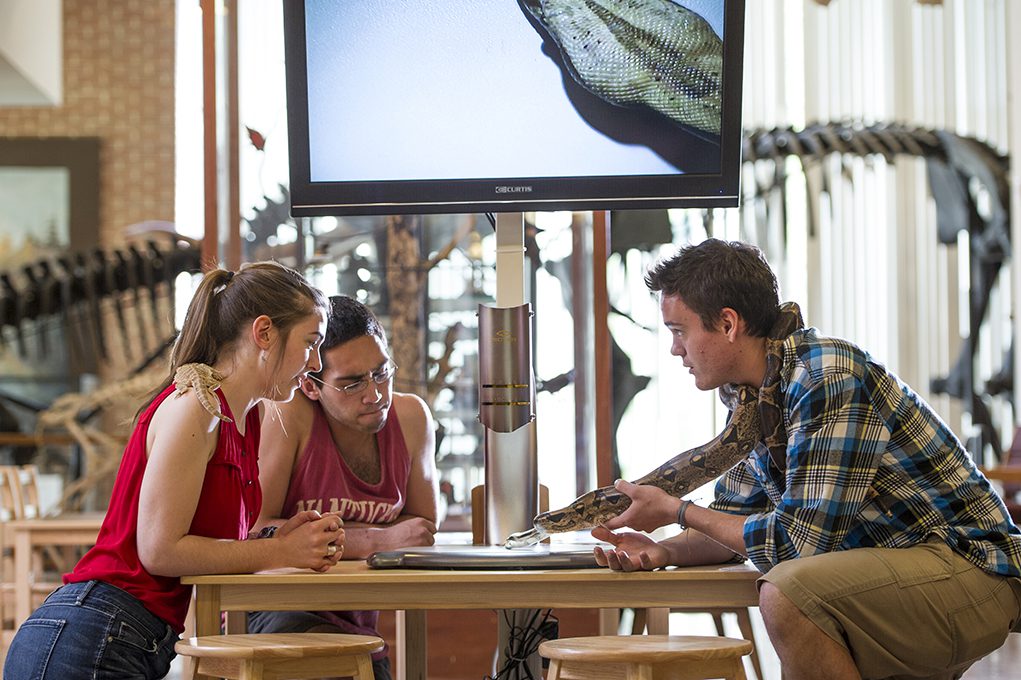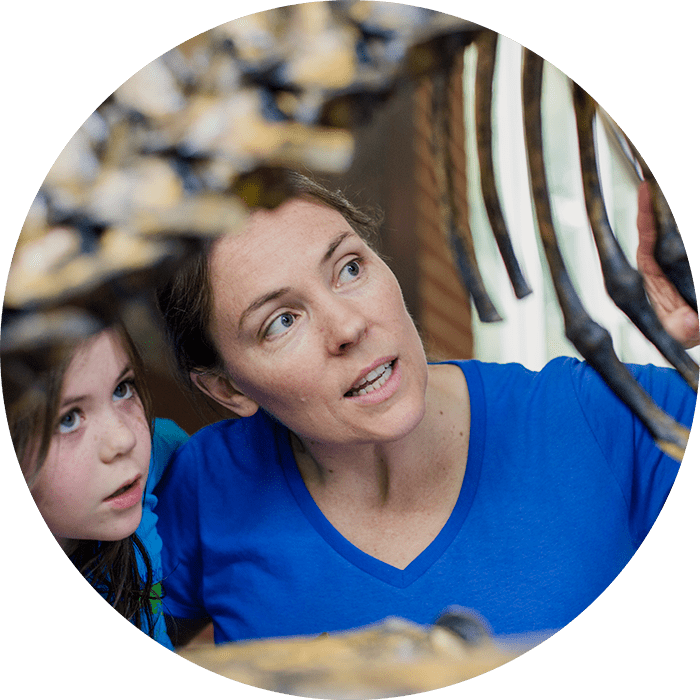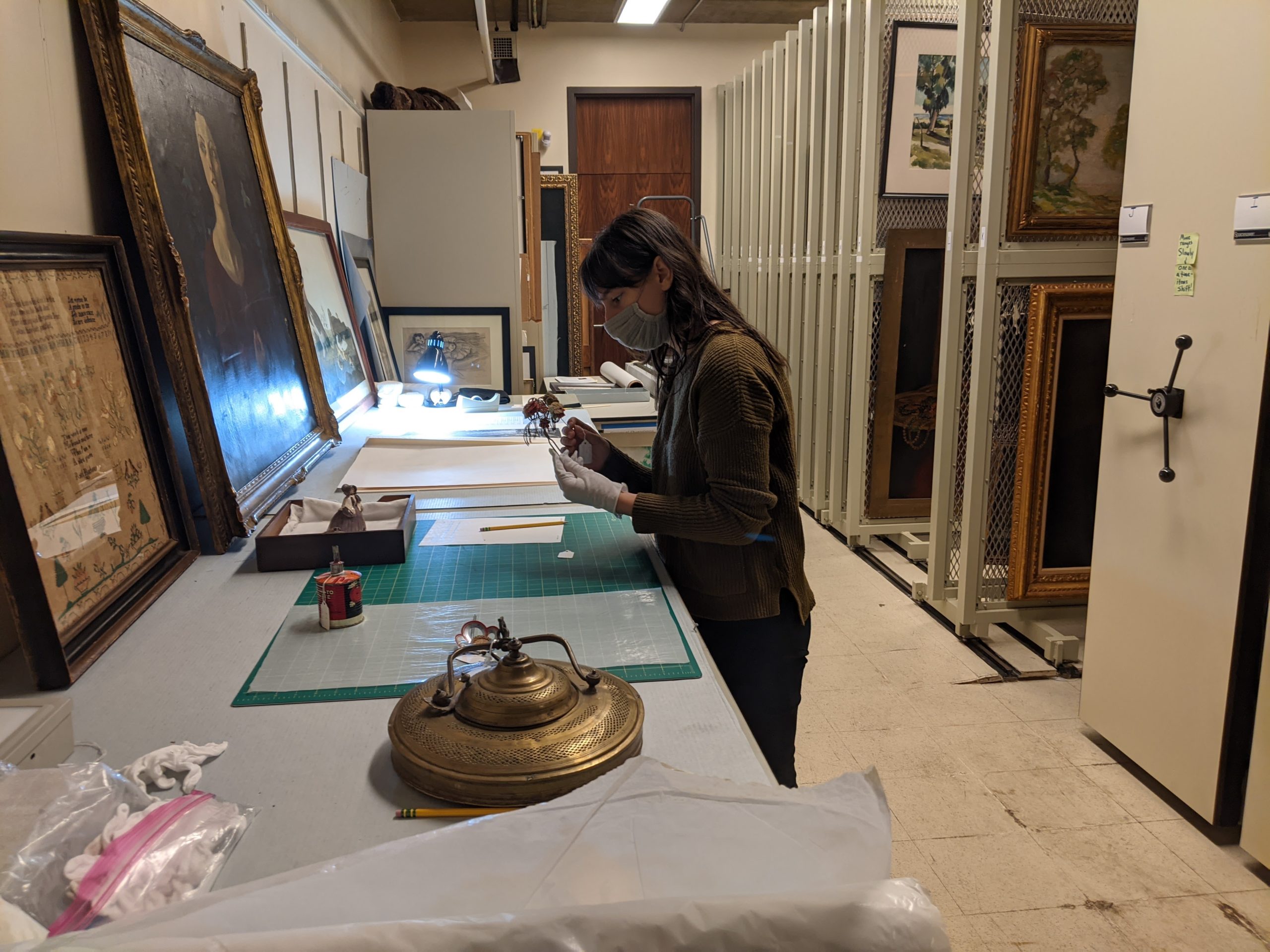Museum Studies
Earlham College’s museum studies program leverages the extensive collections at the college to train students for the museums of the future. An interdisciplinary faculty from the Departments of African and African American Studies, Ancient and Classical Studies, Archaeology, Art, Biology, Earth and Environmental Science, and History guide students to experience the best of a liberal arts education.
Students explore the history, best practices and critical issues of modern museology, and develop a deep disciplinary knowledge within a subject area of their choice.

Start your adventure
Sign up for more information about Earlham College.
The top job industry for recent museum studies majors is education.
Practical training in a liberal arts context
In choosing to pursue museum studies, you’ll benefit from the expert staff and abundant collections at the Joseph Moore Museum of Natural History, the Department of Earth and Environmental Science, the Earlham College Art Collections and the Quaker/College Archives.
Get certified
Earlham’s museum studies program offers all students—regardless of major—the chance to become Certified Interpretive Guides through the National Association for Interpretation. (Just register for MUSE 215!)
Hands-on experience
All students in the museum studies program complete an internship and are encouraged to seek out opportunities that match their interests. Recent students have interned at the American Museum of Natural History, The Smithsonian and the Harriet Beecher Stowe Center.

Our faculty
Drawn from all four divisions of the college, the faculty in museum studies guides students to a deep knowledge of the discipline of their choice and provides training in interpretation, exhibit design and collections care.
Frequently asked questions
The Joseph Moore Natural History Museum, housed on Earlham’s campus, serves as a classroom for students who want to gain hands-on knowledge and experience about working in museums. Current grants from IMLS fund students to work on digitization projects.
In addition to internships and volunteer opportunities locally at the Joseph Moore Museum, the Wayne County Historical Museum, the Richmond Art Museum and the Levi and Catharine State Historic Site, Earlham students have interned around the world at places like the Nibutani Ainu Culture Museum, the Smithsonian and more.
Learn more about available programs via our Center for Global and Career Education.
Yes! Museum studies students are encouraged to study off-campus if they are able. Earlham offers several off-campus study programs where you can get hands-on experience working in museums, including the semester in London.
Learn more about available programs via our Center for Global and Career Education.
Museum studies students are interested in working in museums, galleries or other cultural institutions after graduation. The museum studies major offers practical, hands-on experience for you to learn the curatorial and public education skills needed to effectively work in these settings.
